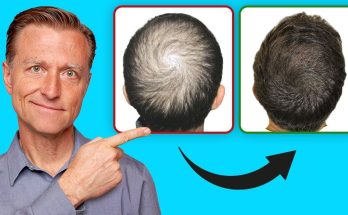
Recognizing a narcissist can be quite tricky, especially since they often come across as charming and well-liked. The quicker you can spot them and keep your distance, the better it will be for your peace of mind. But how exactly can you identify a narcissist early on? Surprisingly, recent research suggests that you might be able to do so by looking at their eyebrows.
Eyebrows as Indicators of Narcissism
It sounds a bit unusual, but studies indicate that eyebrows can reveal narcissistic tendencies. A study from the University of Toronto found that people with “distinctive eyebrows” were more likely to show traits of narcissistic personality disorder. Researchers photographed 40 undergraduate students with neutral expressions and assessed their narcissistic traits using the Narcissistic Personality Inventory. These photos were then shown to other students who were asked to gauge the perceived narcissism of each individual.

The findings were quite revealing: thicker and denser eyebrows were strong indicators of narcissism. In a fascinating twist, when researchers swapped the eyebrows of narcissistic individuals onto non-narcissists, the students ended up misidentifying the non-narcissists as narcissists and vice versa.
What Makes Eyebrows a Clue?
The connection between eyebrows and narcissism isn’t entirely clear yet. One popular theory is that narcissists, who often focus intensely on their appearance, may take extra care to groom their eyebrows meticulously. Since eyebrows play a significant role in how we perceive facial attractiveness and recognition, narcissists might give them special attention to boost their allure.
Another Facial Sign of Narcissism
Further studies have shown that narcissists also exhibit specific facial reactions when they face failure or criticism. They might display subtle, almost involuntary muscle twitches in their eyes and forehead. If you criticize them or point out a minor error, such as a mistake in a story or an incorrect coffee order, you might notice these small, twitch-like movements. These reactions are often subtle, so you need to pay close attention to spot them.
So, What Is a Narcissist?
A narcissist is someone overly focused on their own needs and desires, often disregarding others. These individuals are typically manipulative, deceitful, and exploitative. They tend to be selfish and lack empathy, frequently using others to meet their own goals. While they can be very charming and charismatic, they usually remain self-absorbed and indifferent to the feelings of others.

Narcissist vs. Narcissistic Traits
It’s crucial to distinguish between someone who has narcissistic traits and someone who is a full-blown narcissist. Narcissistic traits include self-centeredness and difficulty in relating to others but do not necessarily indicate a mental disorder. Narcissistic Personality Disorder (NPD) is more severe and involves an inflated sense of self-importance, a need for constant admiration, and a lack of empathy. According to the Mayo Clinic, symptoms of NPD include:
– A grandiose sense of self-importance and a need for excessive admiration. – Believing they deserve special treatment and privileges. – Expecting to be recognized as superior without achievements. – Exaggerating achievements and talents. – Being preoccupied with fantasies of success, power, beauty, or the perfect partner. – Believing they are superior and can only associate with similarly special people. – Looking down on others they perceive as inferior. – Expecting special favors and compliance without question. – Exploiting others to achieve their own ends. – Inability or unwillingness to recognize others’ needs and feelings. – Envying others and believing others envy them. – Displaying arrogance and conceit.
What to Do If You Suspect Someone Is a Narcissist

If you think someone close to you has Narcissistic Personality Disorder, it’s essential to encourage them to seek professional help, though this can be incredibly challenging. Narcissists typically react poorly to criticism, so it might be best to distance yourself from them. If you recognize narcissistic traits in yourself, consider talking to a healthcare provider. A licensed therapist can assist you in managing or overcoming these traits.
